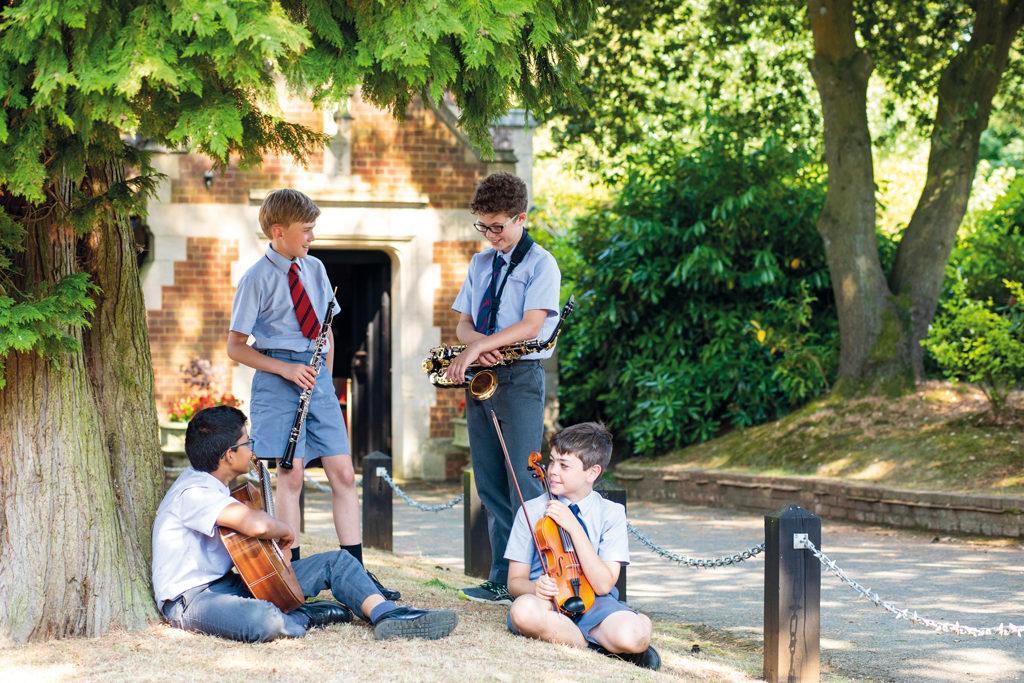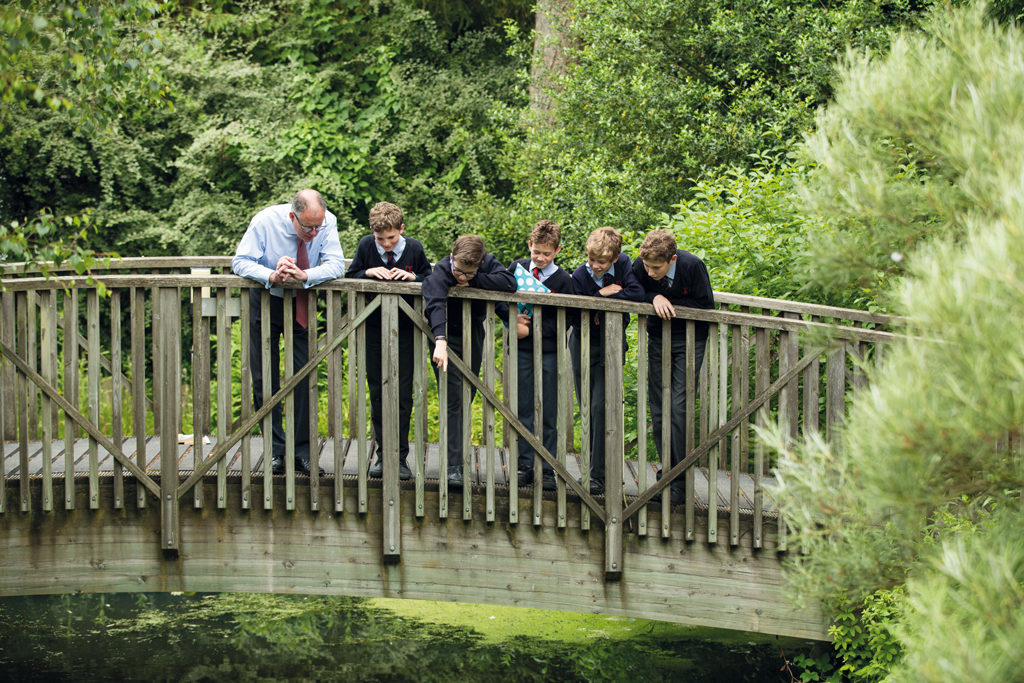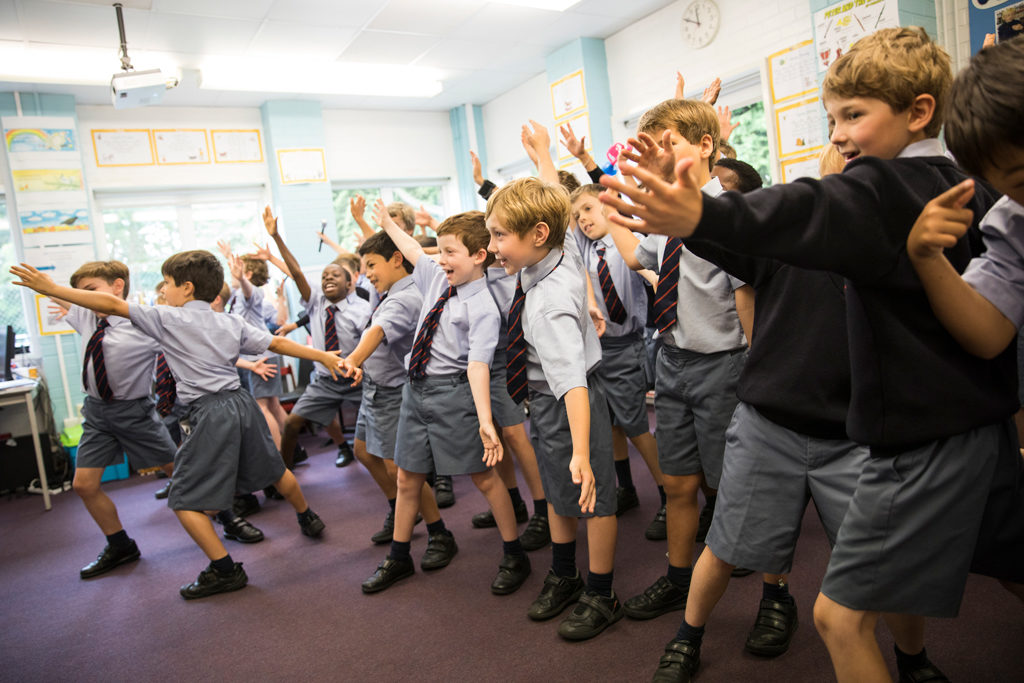Is Music an Important School Subject?
By
6 years ago
Mike Piercy, headmaster of The New Beacon School, Sevenoaks explains its true value

Yo-Yo Ma, the brilliant cellist, has said: ‘Music enhances the education of our children by helping them to make connections and broadening the depth with which they think and feel. If we are to hope for a society of culturally literate people, music must be a vital part of our children’s education.’
We took our chapel choir to Dubrovnik: 25 boys of 11 to 13 years of age, leaving at the unearthly hour of 3am. The highlight of the tour was a concert in Dubrovnik Cathedral but, before that, we were to sing at Mass in a church, in which there was (we had been unreliably informed) a large organ to provide accompaniment. We arrived for our brief and only rehearsal the afternoon before to discover there was no organ. A complete change of anthems and responses was required to sing a cappella. I would not tell the story if the boys had not risen to the challenge.
Isn’t an intrinsic part of education putting children in unfamiliar situations; ones in which they have to adapt or innovate to succeed? And nowhere is this challenge greater than in music where pupils have to perform in tune, on time and in unison; and sometimes without much support.
Putting challenge aside, there is the music-making. Music should be felt and heard by all children throughout school. Teaching a class of nine-year-olds, I illustrated a paddle steamer with an appalling drawing on the board and then started to sing ‘the wheels on the boat go…’ before deliberately hesitating. Spontaneously, the class followed – ‘round and round, round and round’ – and finished a slightly adapted verse of the well-known children’s song. Everyone was smiling and laughing by the end. Such is the power of music!
The New Beacon is a boys’ school. I won’t rehearse the arguments for or against single-sex education but, when it comes to singing, most boys are more likely to ‘go for it’ when girls are not around. Although the chapel choir is auditioned and there are several other choirs, everyone here sings. The older boys, voices breaking and groaning, still sing, even if some of them might be doing little more than heralding the stands of Twickenham in years to come. Put them all together as we did recently at our harvest service – nearly 400 boys aged four to 13 – they make a sound which lifts both heart and soul. The song was Cauliflowers Fluffy: the younger boys sang with energy, the older ones, with nostalgic enthusiasm, but all with huge smiles on their faces.
In an already overcrowded curriculum, music is important. Quite rightly school inspectors try to assess pupils’ ‘personal development’. The early stages of learning a musical instrument are not easy: getting a sound from the reed of a clarinet or oboe or the squeaky, squawky strings of a violin. Patience, practice and sustained effort are all required. The challenge of moving through grading exams develops resilience and quality: genuine, discernible personal development.

Then follows the challenge and pleasure of collaboration – making music together. Teamwork is not found only on the sports field or in problem-solving activities but also in learning to work together, under the direction of a conductor, to produce a big sound, whichever the style of music.
On several occasions the school has welcomed Kidenza, an orchestra of highly talented professional musicians whose aim is ‘to dispel the preconception of classical music as being stuffy and elitist and to provide affordable opportunities for young children to hear and take part in music making’. They perform themed concerts with anecdotes, dialogue and jokes to tell the story of the music to an audience of around 300 (usually primary) schoolchildren. For some, this may be the only music education they get through school. The children love it, learning about the instruments, clapping, cheering and counting. They leave energised – their enjoyment and appreciation of music enhanced.

To reduce or take music out of the curriculum – out of school and out of education – is to under-estimate its broad value. It is akin to taking poetry and literature out of English lessons. The danger is that we will be educating a generation which lacks a richness; a cultural, social and emotional dimension.
This article was originally published in School House Magazine Spring/Summer in March 2019.
READ MORE: Critical Thinking Lessons Teach Children to Question the Status Quo | The Importance of Being Kind



